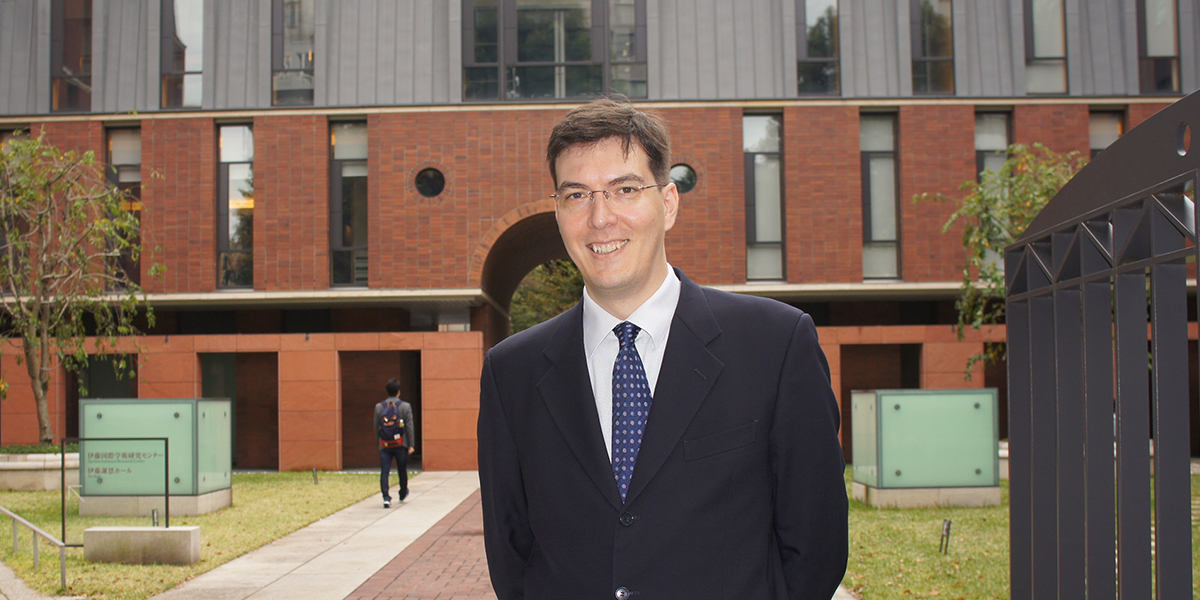
Finding My Calling while Working at UTokyo
-
- Roberto Orsi
- Project Assistant Professor, Graduate School of Public Policy (GraSPP) and Policy Alternatives Research Institute (PARI)
Area of research: International political theory
Country/Region of Origin: Italy
Getting to Know Asia
Soon after I finished my PhD at the London School of Economics in late 2012-early 2013, I was looking for a job. I had been in London for six and a half years, and had studied in other European countries before that, so I was eager for a change. Looking at the world and seeing how countries in the Asian region are rising and becoming ever more important to understanding international political theory, I felt that spending a few years in Asia to get to know the region better would be good for my career.
Japan was my top choice
Out of all the Asian countries, Japan was my top choice. I had visited Japan for vacation in 2009 and greatly enjoyed it. Besides, during my time in Europe, I made many Japanese friends and became interested in their culture. One of my friends was working at the Policy Alternatives Research Institute (PARI), and knew I was looking for a job. They suggested that I apply to a project assistant professor position that was open here. So I did, and here I am!
Japan is a very interesting country to me. I like the fact that Japanese people are very considerate and that they value order, cleanliness, quiet places and attention to detail. Japan itself is a very ancient country that has combined tradition with modernization, and has managed to navigate its way through enormous changes efficiently. I'm really interested in learning about how Japan accomplished that, given that many other countries have not been able to do so. Also, Japan is important to study as the country has been a model for other Asian countries. In addition, after studying in the U.K. for so long, working in a non-English speaking country like Japan will help me gain a new perspective on my research.
There was a lot of paperwork involved in coming to Japan, but everything went very smoothly thanks to the professionalism and great help of the staff at PARI. As my Japanese language abilities were limited at the time, the staff even helped me with finding accommodations, signing contracts, opening a bank account, and other countless practicalities once I arrived in Japan.
Research at PARI
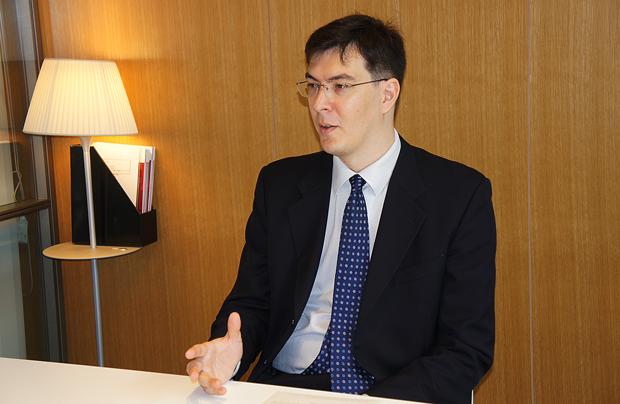
My field of study is international political theory. In other words, I am interested in how international affairs work and in trying to explain why they work in certain ways. Coming from a continental European tradition, I prefer to utilize a historical reading of the world, particularly focusing on the history of political ideas. Ideas influence how people act, and, in turn, how societies function. Ideas themselves have their own history, as they come from particular places and are formed in certain contexts. The reconstruction of such trajectories and contexts is what interests me the most.
Working at PARI is very stimulating
Here at PARI, I plan to elaborate on my Doctoral thesis by writing a book. My thesis concerned the concept of order in international politics, particularly through the lens of the writings of two German authors, Jürgen Habermas and Carl Schmitt. Lately, I have been focusing more on Schmitt, who discussed how theological elements can be seen in political concepts. I am personally dissatisfied with the way Schmitt's writings have been read and interpreted, and I want to reconsider his work and how his ideas relate to the role of theological and religious ideas in the construction of political orders and power struggles.
In addition to working on this book, I write articles about current events, such as the Ukrainian crisis, geopolitics, and the refugee crisis in Europe. I am also a member of a group of people managing an official London School of Economics blog. I have published several pieces there on topics such as war memories, the demonization of Germany, and Italy's decline. Some of these pieces have become viral, with one having been read around one million times!
I enjoy working at PARI since the Institute has a multidisciplinary and international environment. The people involved with PARI come from completely different academic and cultural backgrounds, which makes working here very stimulating. Also, since PARI has abundant financial resources, we have the means to invite prominent scholars from all over the world to come speak at seminars. I have met an extraordinary amount of well-known academics, diplomats and other famous people through PARI. Also, since the University of Tokyo is making more and more connections with institutions worldwide, I often get the chance to go to symposiums and conferences abroad--my work here has already taken me to London and Paris, for example.
Educating Students to become Global Leaders
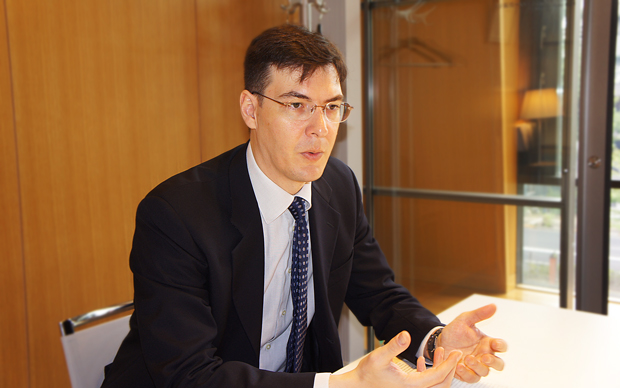
When I was at the London School of Economics, I taught undergraduate students first as a Graduate Teaching Assistant and later as a Teaching Fellow. Since then, I feel that I have found my calling as a lecturer and researcher. Now, I am teaching two graduate-level classes at the University of Tokyo's Graduate School of Public Policy (GraSPP): Introduction to International Politics and Introduction to Social Science. These two classes are also designated as courses that can be taken for the Global Leader Program for Social Design and Management (GSDM).
About the two courses I teach
GSDM is an interdisciplinary program that combines Master's and Doctoral courses, and is open to students in various fields in the humanities and the sciences. It provides education related to global governance and trains students to become global leaders with wide perspectives. Many of the students enrolled in this program belong to the University's Graduate Schools in the science fields. By immersing them in sociology, communication and other related studies, we educate them to become well-rounded individuals. The program also gives students opportunities to study abroad and join a series of special lectures given by famous guest speakers both from Japan and abroad.
One of my courses, Introduction to International Politics, is a regular class that is held at the same time every week. The other course, Introduction to Social Science, is an intensive class that is held four times on weekends or holidays, from nine to five. This class is designed particularly for GSDM students, and is more challenging to teach than the former class due to its intensive nature.
It's important to build a relationship of trust with your students
I teach both courses in English. They are small classes of 15 to 20 students each. The majority of the students in Introduction to International Politics are from Europe, Southeast Asia and East Asia with a handful of Japanese students. In contrast, most of the students in Introduction to Social Science are Japanese, since the majority of students in the GSDM Program are Japanese. Also, many of these students study in the fields of engineering and medical science, so they do not often get the chance to use English. To make things easier for them, I sometimes use Japanese phrases when lecturing. When using technical terms, I give them a memo with Japanese translations of the terms. I am thinking about creating a more complete glossary for my students in the future, which will also help me with my Japanese language studies.
My teaching style is probably influenced by traditional approaches practiced in universities in England. I place particular emphasis on building trust with my students. When we have established a certain degree of reciprocal confidence, students feel more at ease in asking me questions, and I can give them not only information limited to a specific course but also advice on various matters such as their research and future careers.
Let me go into detail about my classes. Introduction to International Politics is a 100-minute class. For the first 50 minutes, I lecture on specific topics based on reading assignments that students are given before each class. The remaining half is used for active discussion to ensure that students deepen their understanding of the topics. At the end of each class, I give students a handout that summarizes the lecture with a list of questions. This serves as a kind of psychological "reward" for students and acts as a physical reminder that they contributed to the class by presenting their own ideas and opinions. Students are also asked to write essays as a part of their evaluation. I think it's good for them to have to write essays because many of them don't have enough experience in writing. Also, I don't know about other professors, but I prefer creating a very long, detailed syllabus. The information I give in the syllabus includes the overall structure of the course, the overview of each class, time allocation, a list of books to be read, evaluation criteria, and a list of questions as a reference for writing essays. Of course, holding office hours after each class is also important to me. Students hesitated at first, but they gradually started coming to my office, and now we talk about all kinds of things.
I consider administrative work to be part of my research
Recently, the load of administrative work at GSDM has been increasing, including regular meetings with other academic staff, making proposals to submit to the steering committee, preparations for events, paperwork and checking administrative documents submitted by students. These tasks are time-consuming and may take up some of my research time, but I consider them to be a part of my research. Also, my colleagues sometimes ask me to proofread documents they write in English, even though I am not a native English speaker! (laughs)
"Everything is Fire"
As I am always busy with my research and teaching, I have not had much time for hobbies. I do try to go to the gym regularly, though. The Gotenshita Gymnasium on campus is very convenient to me and inexpensive. Also, since I live in the Yushima area, I like spending my free time walking around Yushima and nearby neighborhoods such as Okachimachi and Ueno.
Another one of my hobbies is learning Japanese. As I mentioned earlier, I had only a limited understanding of Japanese at first. Japanese is very hard to learn for speakers of European languages, and has multiple layers of difficulties (grammar, pronunciation, kanji, keigo, and so on). When I first came to Japan, I knew only hiragana, katakana, a handful of kanji, and a couple of hundred words. I am trying to learn quickly, though. I go to a kanji class once a week at a Japanese language school, and I take private Japanese lessons twice a week. I also try to talk with my colleagues at PARI and GraSPP in Japanese as much as I can.
By the way, my favorite kanji is 熊 (kuma; bear). My reason for liking this kanji is that my family name, Orsi, is the Italianization of the Latin word VRSI which literally means "child of the bear." I also find it intriguing that this kanji contains the element of fire (the four lines at the bottom). As the Greek philosopher Heraclitus said, "everything is fire," meaning everything is an endless and restless process of change.
Future Plans and Advice
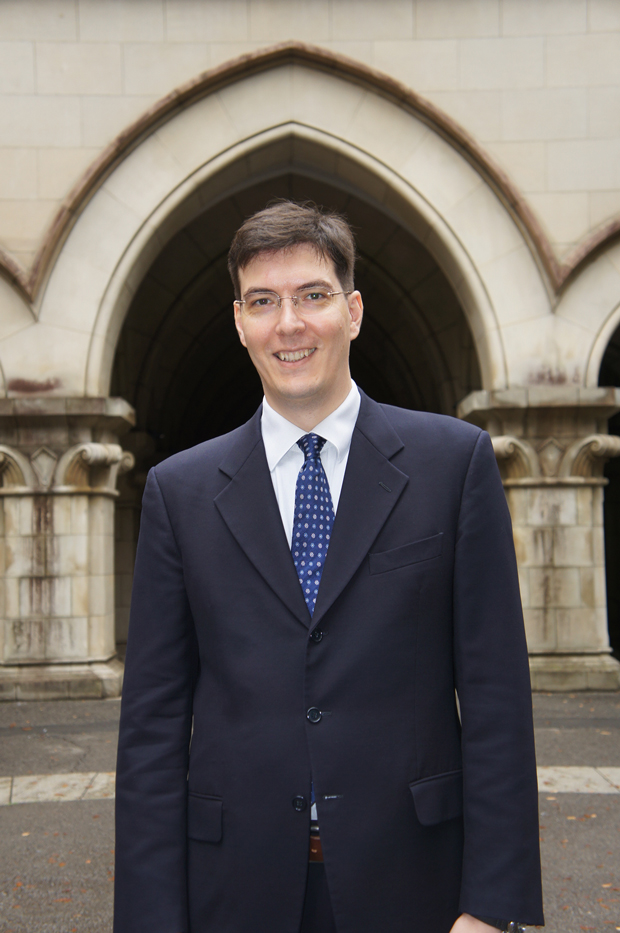
I know that my parents want me to come back to Italy, even though they won't come right out and say it. They actually got my niece to write a letter to me that read "please come home to Italy." (laughs) Despite their intentions, I am not planning to return to Italy any time soon. Since I am single and don't have any familial obligations, I want to live in Japan for a while. By the way, my parents visited Japan last summer. They were very surprised at how I'm so strict about manners and etiquette now. In Japan, there are many unwritten rules about how to behave in order not to bother other people. My parents did not know about these rules at all, so I had to tell them to do and not do certain things. That's probably why they thought I had changed so much. (laughs)
My contract with UTokyo runs for one year and can be renewed for five consecutive years at maximum. If my contract keeps getting renewed, I want to stay in Japan for at least five years like I told my parents I would when I left Italy. I cannot think about the future after that because there are a lot of uncertainties in this age of constant change. One thing that I am sure of is that I want to continue my research as long as I can. Of course, I also want to publish a book version of my Doctoral thesis. If I can continue to doing the kind of work that I am doing now, that would be perfect. Working in many countries while being based in Japan would be a nice idea, too.
Step out of your comfort zone
Finally, I would like to give some advice for those who are planning to work at UTokyo as lecturers or researchers. First, for those who plan to come here for a short time, you should understand that you are expected to produce specific research results in the short period of time you are here. The key to success is to lay out a detailed plan and schedule things in advance. Because the University's professors are very busy, it is advisable to arrange meetings with them efficiently. For those who want to work here for an extended period of time, I recommend that you get serious about studying Japanese. You are expected to step out of your comfort zone. If you have a good command of Japanese, your work opportunities will increase, and you will be able to better understand Japanese culture. Finally, establishing good relationships with your colleagues and students is very important, particularly in Japan, where maintaining harmony within groups is important.
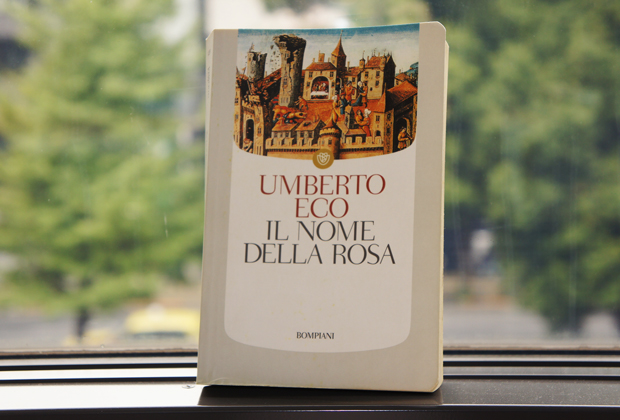
From One Book to Another
The Name of the Rose by Umberto Eco
Roberto, who is an avid reader, brought us a novel titled The Name of the Rose authored by Umberto Eco. He says he encountered this book when he was a teenager and has read it many times since then, always carrying a copy of it with him wherever he goes. The novel, a historical mystery taking place in the Middle Ages, is set in a monastery in a place near Roberto's hometown, Saluzzo. The novel is about books as sources of ideas, with the theme of how books are connected to other books. Roberto always goes from one book to another when doing research, so he feels a strong connection to this novel. Also, the book, which depicts power struggles between different authorities, acts as a rich source of inspiration for Roberto who studies similar power struggles in international politics.
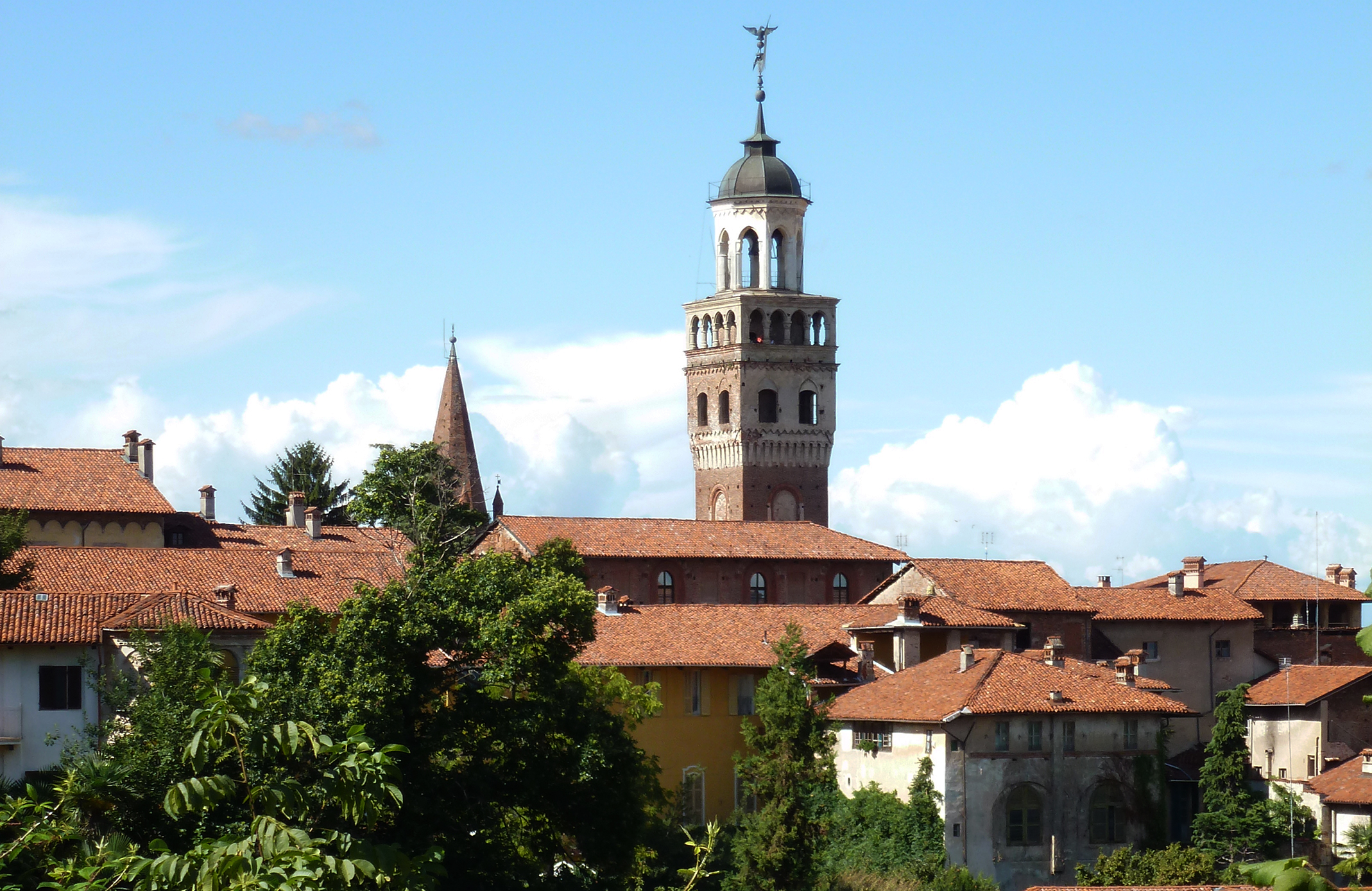
From a Small Medieval City to the World
Saluzzo, Roberto's hometown
Roberto comes from Saluzzo, a small town in the region of Piedmont, Italy. Known for its cathedral which was constructed in the 1500s, Saluzzo was established as a provincial capital around the 1100s and maintains a picturesquely medieval appearance. Roberto's family members mainly speak in Piedmontese, a Romance language that is bears some similarity to French. Raised as a bilingual in Piedmontese and Italian, Roberto is now proficient in French, English and German, and is in the process of learning Japanese. He says he is the only member of his family who has ever lived abroad, gone to university, and learned to speak foreign languages!





